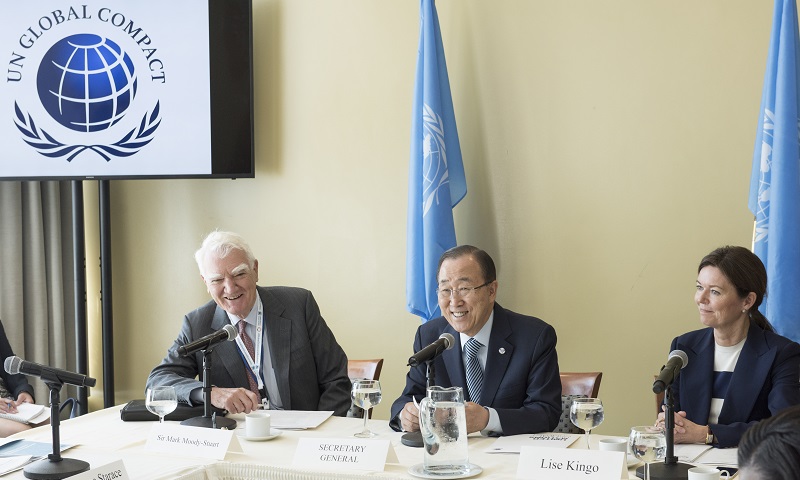
Achieving the Sustainable Development Goals (SDGs) for the 2030 Agenda requires extraordinary cooperation and leadership from the private sector. In his opening address at the 2016 United Nations Global Compact Leaders Summit, Secretary-General Ban Ki-moon urged businesses at the global and local-levels to adopt the principles of the UN Global Compact, which address social development issues, in helping to achieve the SDGs.
The 2016 Leaders Summit took place at UN Headquarters in New York from 22 to 23 June. The Summit gathered leaders from business, civil society, academia, the UN and UN Member States to highlight how the SDGs present an opportunity for the private sector and stakeholders to innovate, invest and collaborate for a sustainable global economy. Business leaders and entrepreneurs have a responsibility to let sustainability drive innovation and investment.
The UN Global Compact is a corporate sustainability initiative that supports the private sector to do business responsibly by aligning their strategies and operations on human rights, labour, the environment and anti-corruption principles and to take strategic actions to advance the SDGs through collaboration and innovation.
A number of speakers at the Summit highlighted the role and responsibility of the private sector in achieving the SDGs. The private sector is well-positioned to eliminate the inequalities that persist in wage gaps, discriminatory hiring and in welfare based on work. Businesses can take on global goals and implement them locally by creating inclusive opportunities for women, indigenous people, persons with disabilities and youth. The private sector also needs to address negative externalities that produce climate change and environmental degradation, as well as inequalities that spurn conflict throughout the world.
The Global Compact is where the private sector and the SDGs meet. UN Global Compact Executive Director Lise Kingo affirmed that the initiative was built on the premise that business has an important part to play in global development by acting responsibly on these core principles for doing business. “Principles are simply good business,” admitted Ms. Kingo. Sticking to these principles also gives the private sector an opportunity to improve and innovate for sustainable investment opportunities and new markets.
The financial sector also has an important role to play, in helping to invest in sustainable businesses and a responsibility to adhere to the Global Compact’s principles. To ensure that no one is left behind means that financial institutions, companies and entrepreneurs have a responsibility to ensure that good business benefits everyone.
For more information on the 2016 UN Global Compact Leaders Summit, please click here.
Source & Copyright: UNDESA
 Welcome to the United Nations
Welcome to the United Nations